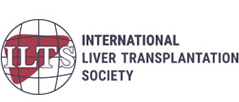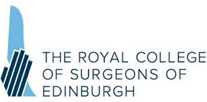Surgery for removal of the gallbladder, also known as a cholecystectomy, is usually done for treatment of gallstones. Gallstones can cause symptoms such as pain in the upper abdomen sometimes radiating to the back or an acute inflammation of the gallbladder known as acute cholecystitis. A cholecystectomy is a very common procedure in most hospitals for treating patients with gallstones.
If you are suffering from gallstones or have pain in the upper abdomen, you may have been advised to see a surgeon, and you may be wondering what to expect when you visit the doctor and how to prepare for the surgery.
What to expect when you visit the doctor in the outpatient's clinic?
If you have pain in the upper abdomen, or if you have been diagnosed with gallstones on a routine ultrasound scan, you will see a surgeon in the outpatients clinic as a first step towards treatment of the gallstones.
During this visit, the surgeon will take a detailed history regarding your symptoms which may include details such as timing of the pain, relationship to food, and severity of the pain. He will then do a clinical examination to assess if he can feel the gallbladder or if you experience any discomfort or pain during the examination.
Subsequently, you will undergo an ultrasound scan and perhaps some blood tests if you have not already had these investigations done earlier. The ultrasound scan and will reveal the presence of gallstones and also suggest the presence of either acute or chronic inflammation of the gallbladder. This surgeon would also be interested in looking at the size of the common bile duct on the ultrasound scan.
Based on these investigations and the clinical impression, you will be advised if you need to undergo surgery for the removal of the gallbladder or a cholecystectomy.
Preparation for surgery
Your surgeon will go to the details of the surgical procedure and will also explain potential risks and complications of the procedure prior to obtaining the consent for the surgery.
The hospital will then apply for insurance approval prior to finalizing the date of your surgery.
You will also see an anaesthetist as part of preoperative assessment, who will go through your general medical history and assess you regarding your fitness for general anaesthesia.
You may also undergo some blood tests including liver function tests prior to the surgery. If the liver function tests show any abnormality, there may be a possibility of a stone in the common bile duct which will need to be assessed by an MRI scan called MRCP followed by possibly an endoscopic procedure known as ERCP to treat the bile duct stone, prior to undergoing a laparoscopic cholecystectomy.
How is the surgery performed?
Gallbladder removal surgery is performed usually by the minimally invasive method, also known as keyhole surgery. The minimally invasive method may be either laparoscopic cholecystectomy or a robotic cholecystectomy. Both these methods are minimally invasive and will usually done through 4 small incisions on the abdomen.
In some rare situations where it may be difficult to remove the gallbladder through minimally invasive surgery, your surgeon may opt for an open cholecystectomy, which is usually through a longer incision on the right upper abdomen. This happens in less than 5% of instances and your surgeon will explain to you about this possibility.
What to expect on the day of your surgery?
You will be asked to fast for at least 6 hours prior to the scheduled time of her surgery. If the surgery is planned for the morning, you may be asked to fast from midnight. During this time of fasting you should ensure that you do not consume any solid food for at least 6 hours and no liquids for at least 4 hours prior to the surgery.
You will be asked to report to the hospital at least 2 hours prior to the surgery and will be allocated an inpatient bed on the surgical ward. The nurses on the ward with then prepare you for the surgery and you will be shifted to the operation theatre when it is time for your surgery.
What happens in the Operation Theatre?
Once you reach the operation theatre complex, you may have to wait in the preoperative waiting area for a short while until the operation theatre is made ready. You will be visited by the anaesthetist during this time.
Once you are in the operation theatre, the anaesthetist will administer the general anaesthesia and you will be put to sleep.
The surgeon with then perform the laparoscopic cholecystectomy or robotic cholecystectomy. The actual operation usually takes about 1 hour. At the end of the surgery, the surgeon will close the incisions usually with subcuticular sutures which are under the skin and will be absorbed naturally by the body. The gallbladder that has been removed will be sent for pathological examination.
Postoperative Care
After the surgery, you will be observed in the post-operative recovery room for about an hour until you are fully awake and the nursing team and the anaesthetist are happy with the recovery. You would then be shifted to the surgical ward back to your room which was allocated to you earlier.
You will be prescribed painkillers to keep your pain under control. You will be encouraged to get out of bed as soon as possible with help from the nursing team. You will be able to eat and drink once you are fully awake.
Most often, you will stay one night in the hospital and will be discharged the next morning after breakfast. The doctor will review you prior to discharge.
You will be given medications to be taken at home for a few days. Once you are at home, it is recommended that you should go about all your regular activities and should spend minimal time in the bed. The only precaution that you have to follow will be to not lift anything heavy for a period of 4-6 weeks from the time of surgery.
Most patients will recover nearly completely within 1 week from the surgery. You will be reviewed by your surgeon in the clinic about a week after the surgery to check wound healing and also to review with you the histopathology from the gallbladder that has been removed.
If you have any questions regarding gallbladder surgery, please contact Dr Hemant Vadeyar for further information.




